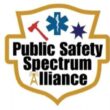Rebanding still behind schedule
Rebanding mediation activity dominated the latter portion of 2006 for many Wave 1 800 MHz public-safety licensees with mixed results, and many involved in the process have expressed concerns about logistical challenges that loom in the near future.
Without releasing detailed numbers, the 800 MHz Transition Administrator (TA) issued a statement that Sprint Nextel and “a majority” of the 322 Wave 1 NPSPAC licensees in mediation resolved their disputes — an encouraging note after more than 80% entered the dispute-resolution process.
But despite the successful mediations, sources estimate that less than half of the Wave 1 NPSPAC licensees are ready to relocate to new frequencies. Many of the public-safety entities managed deals only for planning funding and must do considerable work before beginning negotiations on a final frequency reconfiguration agreement (FRA).
“It’s more encouraging than it has been, but we’re still not where we want to be,” said Wanda McCarley, president of APCO.
Alan Tilles, who represents about two dozen NPSPAC licensees in Wave 1 as a partner in the law firm of Shulman Rogers Gandal Pordy & Ecker, said he was able to reach agreements in about 75% of his cases, with most of the deals being FRAs in cases that “just needed a little bit more time.”
However, Tilles said he had to file a proposed resolution memorandum (PRM) in about six of his Wave 1 cases, each of which he believes will be appealed to the FCC. In comparison, only six cases in the first three waves of Channel 1-120 licensees reached the FCC, so the commission promises to be much busier with the NPSPAC licensees.
“It’s about time they start doing something,” Tilles said.
In November and December, the FCC released rulings on cases that were appealed to the commission in the spring. While the commission decided to delay negotiations for Wave 4 Channel 1-120 licensees in border areas until treaty agreements are reached with Canada and Mexico, several other issues — notably, petitions clarifying liability regarding appeals to the FCC and Sprint Nextel’s obligations concerning the 18-month deadline that passed on Dec. 27 — were not resolved as of press time.
And such matters are not likely to be addressed any faster as long as the FCC maintains existing policies established by Chairman Kevin Martin, Tilles said.
“Everything’s got to flow through the chairman’s office and — until they’re willing to change that — it’s just going to be ridiculously slow for anything,” he said.
Rebanding delays are having ripple effects throughout the industry. With many Wave 1 public-safety entities not even in a position to begin negotiating an FRA five months after the original TA schedule indicated they would be done, vendor giant Motorola has shipped less than 250 radios and less than 50 software-upgrade kits to rebanding customers, said Chuck Jackson, Motorola’s vice president and director of system operations.
Rebanding activity should increase considerably during the first quarter, when political bodies that lead many NPSPAC licensees meet often after taking a break for the holidays, Jackson said. But, with so much focus on Wave 1 negotiations, Jackson predicted that most Wave 2 NPSPAC licensees will enter the mediation process — a cycle he believes will continue until the FCC rules on some of the more common items of dispute.
“What we see an awful lot is the same issues being argued with all of the customers,” Jackson said. “The customers aren’t allowed to talk [to each other] because of the confidentiality issues, so the same issues are getting rehashed in 150 negotiations.”
Meanwhile, the slow negotiation process is causing concern about the ability to execute reconfiguration plans in a timely manner. Even though the Utah Communications Agency Network was the first public-safety licensee to reach a planning-funding agreement in February 2006, it’s likely that an FRA will not be reached until February of this year, UCAN Executive Director Steve Proctor said.
But UCAN’s proactive approach to rebanding likely will not be enough to meet the TA’s existing timeline, Proctor said.
“We have about 15,500 radios. Assume it takes one hour per radio — averaging travel time to get to it and whatever you need to do — and divide that 15,500 hours by 2080, which is an average work year. That’s seven man years worth of time right there, so you can see what a huge job this is,” Proctor said. “And that’s just to touch the radios. That doesn’t count the infrastructure on 60 mountaintop sites, some of which are only accessible two or three months per year.
“I think we’ve overestimated our ability to accomplish the task at hand on some of these large, multi-jurisdictional systems.”
Sprint Nextel also is facing logistical challenges. With its Boost Mobile service — using the former Nextel iDEN network — gaining new subscribers rapidly, the company is facing spectrum-capacity issues made more difficult by frequency shifts necessitated by rebanding. To date, Sprint Nextel has spent about $1 billion on rebanding, although only a small fraction of that total has reached other 800 MHz licensees (see chart on page 10).
Making matters worse for Sprint Nextel, which has seen its stock price fall 25% during the past seven months, is the fact that a Motorola vocoder that was expected to double the iDEN network’s capacity “flat-out does not work,” said Ovum wireless analyst Roger Entner.
“Thing should get easier now that they have this dual-band phone, where you have push-to-talk iDEN and Sprint voice service,” Entner said. “But, basically, it’s a mess, and Gary [Sprint CEO Gary Forsee] is under the gun. There’s no argument about that.”
| PURPOSE | AMOUNT (In Millions) |
|---|---|
| RECONFIGURE NEXTEL | $712.50 |
| CLEAR 1.9 GHZ | $21.90 |
| PAY 800 MHZ LICENSEES | $175.40 |
| TOTAL | $909.80 |
| Source: TA financial supplement to quarterly report, 11/21/2006 | |













